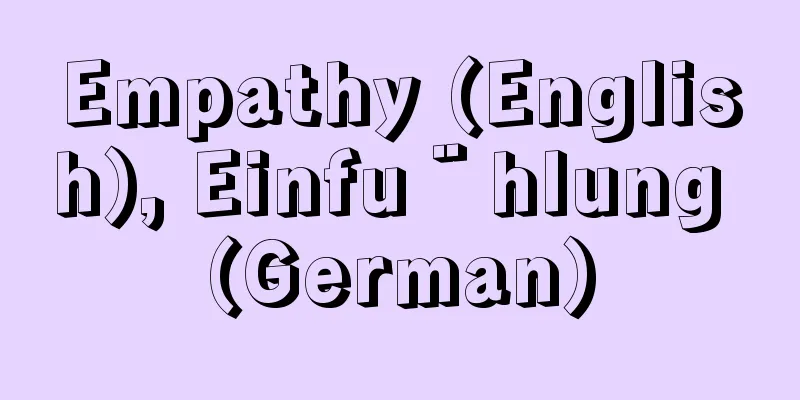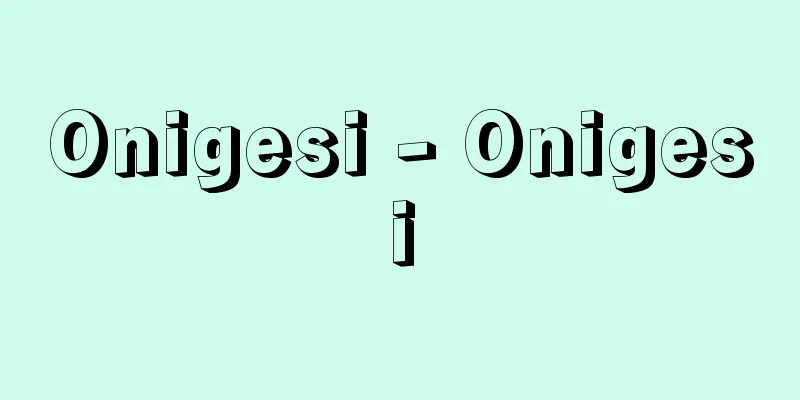Konoe Fumimaro

|
A politician from the Taisho and Showa eras. Also read as "Konoea Yamaro." Born on October 12, 1891 (Meiji 24) in Tokyo as the eldest son of Atsumaro, a Meiji nationalist who served as President of the House of Peers and Privy Councilor. His mother, Sawako, died eight days after Fumimaro's birth, and Sawako's younger sister, Maeda Sadako, became Atsumaro's second wife. Conductor Hidemaro was his half-brother. His father died in 1904 (Meiji 37), and he had an unhappy childhood. He studied at Gakushuin Elementary and Middle School, First High School, and Kyoto Imperial University Law School. While still a student at Kyoto Imperial University in 1913 (Taisho 2), he married Mori Chiyoko. He studied under Kawakami Hajime and translated The Soul of Man under Socialism by British author Oscar Wilde, which was published in the May and June 1914 issues of Shinshicho, which resulted in the publication being banned. After graduating, he joined the Ministry of the Interior, and in 1919 attended the Versailles Peace Conference as an attendant to Saionji Kinmochi, the plenipotentiary. As a member of a distinguished family, the 46th head of the Gosekke (Five Regent Houses), Fujiwara no Kamatari, he was seen as a promising young man in the aristocracy. In October 1916, he became a member of the House of Peers when he turned 25, and after joining the Study Group in September 1922, he formed the Tuesday Society in November 1927 (Showa 2), becoming the vice-chairman of the House of Peers in January 1931 and the chairman in June 1933. At a young age, he published an essay entitled "Rejecting Anglo-American Pacifism" (Nihon to Nihonjin, December 1918 issue), in which he argued that "in order to establish the right of all the nations of the world to live equally, based on justice and humanity," "Anglo-American pacifism" and "economic imperialism should be rejected, and each country should liberate its colonies" to ensure Japan's future. This idea of breaking the status quo led him to highly praise Japan's policies, such as the Manchurian Incident and withdrawal from the League of Nations, which allowed him to jump on the trend of fascism at the time and become one of the candidates for prime minister. He felt an affinity with the Imperial Way faction of the army, and was ordered to form a cabinet immediately after the February 26 Incident in 1936, but he declined due to health reasons. In June 1937, he was appointed as the first cabinet, but the Second Sino-Japanese War broke out on July 7. The government initially adopted a policy of non-expansion, but was overwhelmed by the military and plunged into all-out war. On January 16, 1938, he declared that "we will not treat the Nationalist government as an opponent," closing the way to peace, and on November 3, he declared that "the construction of a new order in East Asia" was Japan's war aim, and that he would welcome the Nationalist government's participation if it "achieved results of rehabilitation." Furthermore, on December 22, he announced the Three Konoe Principles (good neighborliness, joint anti-Communism, and economic cooperation), and promoted the establishment of Wang Jingwei's government, making clear his intention to continue the invasion of China. In January 1939, he resigned and became the President of the Privy Council, and at the same time served as a Minister without Portfolio in the Cabinet of Hiranuma Kiichiro. In July 1940, he formed his second cabinet, launched a new order movement, and in October formed the Imperial Rule Assistance Association, creating the central organization of Japanese fascism. After the Tripartite Pact was signed between Japan, Germany, and Italy, he promoted negotiations with the United States, but resigned in order to remove Foreign Minister Matsuoka Yosuke, who was opposed to this. He then formed his third cabinet in July 1941, but due to opposition from Army Minister Tojo Hideki, Japan-U.S. negotiations reached a deadlock, and he resigned in October. In 1944, he attempted to overthrow the Tojo Cabinet, and in February 1945, he presented the Konoe Memorial to the Emperor, arguing that, recognizing that defeat was inevitable, the Communist revolution that would accompany it was more frightening than defeat itself, and that the government's absolute priority should be to protect the national polity (protect the Emperor System). After the war, he joined the Cabinet of Higashikuninomiya Naruhiko as a Minister of State with the equivalent of Deputy Prime Minister, and worked on constitutional reform, but was named a war criminal and committed suicide by taking poison on December 16th. Tall and handsome, he was intelligent and famous for being a good listener, which gained him many supporters, but he lacked energy and decisiveness, and although he himself was not in favor of the expansion of the Sino-Japanese War, he bore great political responsibility for not taking decisive action and allowing the war to expand. [Junichiro Kizaka] "Konoe Fumimaro, volumes 1 and 2, by Yabe Sadaharu (1951-1952, Konoe Fumimaro Biography Compilation and Publication Committee)" ▽ "Konoe Fumimaro, by Yabe Sadaharu (1958, Jiji Press)" ▽ "Konoe Diary, edited by the Konoe Diary Editorial Committee of Kyodo News (1968, Kyodo News Development Bureau)" ▽ "Konoe Fumimaro - The Tragedy of an Intellectual Populist, by Tsutsui Kiyotada (Iwanami Gendai Bunko)" [References] | | | | |©Shogakukan Library "> Fumimaro Konoe Source: Shogakukan Encyclopedia Nipponica About Encyclopedia Nipponica Information | Legend |
|
大正・昭和時代の政治家。「このえあやまろ」とも読む。1891年(明治24)10月12日、明治の国権主義者で、貴族院議長・枢密顧問官などを歴任した篤麿(あつまろ)の長男として東京市に生まれる。母衍子(さわこ)は文麿の生後8日目に死去し、衍子の実妹前田貞子(ともこ)が篤麿の後妻となる。指揮者秀麿(ひでまろ)は異母弟。1904年(明治37)父が死去し、不幸な少年時代を過ごした。学習院初等科・中等科から第一高等学校、京都帝国大学法科大学に学んだ。京都帝大在学中の1913年(大正2)毛利千代子と結婚。河上肇(かわかみはじめ)の教えを受け、イギリスの作家オスカー・ワイルドの『社会主義下の人間の魂』を翻訳して『新思潮』1914年5月号と6月号に発表し、発売禁止処分を受けたこともある。卒業後内務省に入り、1919年西園寺公望(さいおんじきんもち)全権の随員としてベルサイユ講和会議に出席した。五摂家(ごせっけ)の筆頭、藤原鎌足(ふじわらのかまたり)から数えて46代目という名門の出身であるところから、若くして華族界のホープと目された。1916年10月満25歳になると同時に貴族院議員となり、1922年9月研究会入会を経て1927年(昭和2)11月火曜会を結成、1931年1月貴族院副議長、1933年6月同議長に就任した。若くして論文「英米本位の平和主義を排す」(『日本及日本人』1918年12月号)を発表し、「正義人道に本(もとづ)く世界各国民平等生存権の確立の為(ため)」、「英米本位の平和主義」と「経済的帝国主義を排して各国をして其(その)植民地を開放せしめ」、日本の進路を確保すべきであると論じていた。こうした現状打破的な考えから、満州事変や国際連盟脱退などの日本の政策を高く評価したことが、当時のファッショ化しつつあった時流に投じ、首相候補の一人に数えられるに至った。陸軍の皇道派に親近感をもち、1936年の二・二六事件直後には組閣の大命を受けたが、健康を理由に拝辞した。 翌1937年6月与望を担って第一次内閣を組織したが、7月7日に日中戦争が勃発(ぼっぱつ)した。政府は初め不拡大方針をとったが、軍部に押し切られて全面戦争に突入した。1938年1月16日「国民政府ヲ対手(あいて)トセズ」と声明して平和への道を自ら閉ざし、11月3日「東亜新秩序建設」が日本の戦争目的であり、国民政府が「更生ノ実ヲ挙ゲ」てこれに参加するなら歓迎すると声明、さらに12月22日近衛三原則(善隣友好、共同防共、経済提携)を発表して汪兆銘(おうちょうめい)政権擁立工作を進め、中国侵略継続の意図を明らかにした。1939年1月総辞職して枢密院議長に就任、同時に平沼騏一郎(ひらぬまきいちろう)内閣の無任所大臣を務めた。1940年7月第二次内閣を組織し、新体制運動を展開して、10月大政翼賛会を結成、日本ファシズムの中心組織をつくりあげた。 また日独伊三国同盟締結後、日米交渉を進め、これに反対する松岡洋右(まつおかようすけ)外相を排除するためいったん総辞職、1941年7月第三次内閣を組織したが、東条英機(とうじょうひでき)陸相の反対にあって日米交渉は行き詰まり、10月総辞職した。 1944年東条内閣打倒を図り、1945年2月近衛上奏文を天皇に奉呈し、敗戦必至との認識のもとに、恐ろしいのは敗戦よりもそれに伴う共産革命であり、政府は国体護持(天皇制擁護)を絶対の課題とすべきであると主張した。敗戦後、東久邇宮稔彦(ひがしくにのみやなるひこ)内閣に副首相格の国務相として入閣、憲法改正などにあたったが、戦犯に指名され、12月16日服毒自殺した。長身端麗にして聡明(そうめい)、「聞き上手」は有名で多くの支持者を得た反面、気力と決断力に欠け、彼自身は内心日中戦争の拡大に賛成ではなかったが、断固たる処置をとらず、戦争拡大を許した政治責任は重大であった。 [木坂順一郎] 『矢部貞治著『近衛文麿』上下(1951~1952・近衛文麿伝記編纂刊行会)』▽『矢部貞治著『近衛文麿』(1958・時事通信社)』▽『共同通信社『近衛日記』編集委員会編『近衛日記』(1968・共同通信社開発局)』▽『筒井清忠著『近衛文麿――教養主義的ポピュリストの悲劇』(岩波現代文庫)』 [参照項目] | | | | | |©小学館ライブラリー"> 近衛文麿 出典 小学館 日本大百科全書(ニッポニカ)日本大百科全書(ニッポニカ)について 情報 | 凡例 |
Recommend
Oklahoma!
…American composer who wrote many classic musical...
Subsidies - Hojokin (English spelling)
It refers to cash benefits that the national or l...
Tartelette
…Such pies without a crust are often called tarts...
On the Morning of Christ's Birth - On the Morning of Christ's Birth
… Modern poets such as Ronsard, one of the later ...
Draughts
...A board game played by two people. Checkers is...
Pilfering - Nukeni
Smuggling in the Edo period. It was mainly conduc...
Sitting posture - Zahou
The way of sitting. Bodhisattva Bosatsu and Buddhi...
White wisteria - White wisteria
A deciduous shrub of the Buddlejaceae family. It ...
Crataegus pinnatifida (English spelling) Crataeguspinnatifida
…[Hiroshi Aramata]. … *Some of the terminology th...
The Chronicle of Yoshitsune
A military tale. Eight volumes. Author unknown. P...
Houphouët-Boigny, F.
...Both the president and the members of parliame...
Ethics
…In other words, the way is almost synonymous wit...
Zhivkov, T.
…Official name = Republic of BulgariaRepublika Bâ...
Kasutori Shochu - Kasutori Shochu
...the slang term for popular entertainment publi...
Wine gallon
...This definition was established by the Weights...









